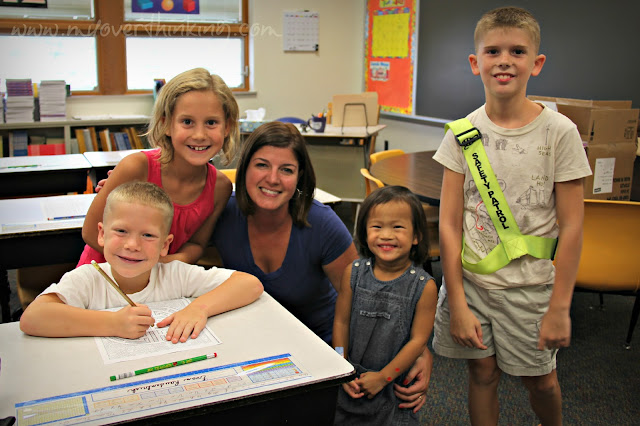I was tracking with her.
Lydia runs away. She can’t stay still. She’s not listening.
I nodded my head, identifying with her sympathetically, “Yeah, I know what you are seeing because we see that at home too.”
“Well, it’s not okay here.” (Apparently, time outs are though.)
Okay, no longer tracking. It was dismissal, moms were all hugging on their kids and scooping them up to head home, Lydia was nearly out the door of the building by herself and I’m finding myself starting to sweat as I want to defend our parenting and educate on the effects of early childhood trauma and subsequent parenting strategies.
What I really wanted to say, “Woah…wanna try that again with respect this time?”
Instead, I let things sit for a few days, realized that my first approach would likely not be taken and applied as I would want and that sometimes my overthinking can be productive in that it can lead to words that may help everybody involved instead. Apparently, it’s a lot easier to respond thoughtfully and with love after considering the teachers’ experience a bit more and when your 3 year old is napping peacefully in bed and you are sipping on a decaf pumpkin coffee.
Dear Teachers,
I’ve been thinking about the conversation we had about Lydia’s behavior in class. I wish we had had more time to chat right then and there. Since we didn’t, I hope you don’t mind me connecting with you now via email before class this coming week.
As we prepared to adopt Lydia and became aware of the unique needs of children who have experienced early trauma, we embraced new strategies to use in our family that better foster attachment and relationship while recognizing sensory and physiological makeup. We are not permissive in our strategies, but we do use strategies that may seem a bit “softer” than traditional ones. The way we see it, we can be high on structure as long as we are equally high in nurture.
Lydia is sensory seeking in most areas, meaning she physiologically craves more sensory input than the typical kiddo. She has to touch everything and moves constantly in a way that can look like hyperactivity. However, she is sensory avoiding to sounds and smells, meaning that she has a super-sensitivity that can cause significant distraction for her to noise (especially ones she’s not expecting) and good or bad smells. We realized early on that some behaviors that could be viewed as disobedient were really related more to sensory processing issues than a rebellious heart. We have found that “making her stay still,” for example, is not only frustrating for us when it doesn’t work, it also causes her to respond in a way that escalates things to rebellion. So, we make provision. For example, we have a rocking chair I keep in the car now for her to use in structured experiences where she needs to stay still. We have found that if she has the experience of motion through rocking, her craving for sensory input is satisfied and she’s able to stay more engaged in whatever is going on. We haven’t had any issues with the chair being a distraction for the rest of the class and would be glad to give this a try for your structured class time if it helps.
You also shared how she ran from you, specifically as you left the playground to come back to class. We deal with this a lot with her. Perhaps it stems from her more-than-typical need to control the situation, her sensory needs, as well as her rebellious nature! It’s impossible to totally figure that out as we look at some of her challenging behaviors. Regardless, our strategies are the same. Once I know a trigger (like leaving the playground), I’d be proactive and say to Lydia during line up, “Okay, Lydia, you have two choices [showing her my two fingers so she has some visual cues as well as auditory]: you can walk alone [pointing to the first finger] OR you can walk holding my hand [pointing to the second finger]. It’s your choice.” If she chooses walking alone, I’d say to her, “Good choice. Now, if you walk alone and I start to notice that you can’t walk in the line slowly, I’m going to have to hold your hand in the back of the line, okay?” That way, she’s making the choice herself and knows what will happen if she doesn’t hold up her end of the deal.
Does that make sense? I know it’s a lot to spell out here and a lot to ask you two who already go way beyond the call of duty to serve these kids and their moms (i.e., ME!). It would be a real blessing to us to have you able to reinforce in class what we’re doing at home. And, since she’s familiar with these strategies and we’ve seen them work for her, I’m hoping they are a blessing to you in class as well! If you see any other repeated behaviors from Lydia that need addressing, please do not hesitate to share them with me so that we can strategize together. I want to be a support to you guys as well as set Lydia up to succeed.
Looking forward to next week already,
Big hugs for all you do,
Kelly
